 LOUISIANA DEPARTMENT OF ENVIRONMENTAL QUALITY | Secretary Aurelia S. Giacometto
LOUISIANA DEPARTMENT OF ENVIRONMENTAL QUALITY | Secretary Aurelia S. Giacometto
 A DEPARTMENT OF THE STATE OF LOUISIANA
A DEPARTMENT OF THE STATE OF LOUISIANA
Dynamic model that can simulate nutrients and their impact on the ecosystem, including fish, invertebrates, and aquatic plants.
The Arkansas Master Farmer program is being developed to assist the agriculture producers in the state address the key environmental concerns. The curriculum is being developed using a modular approach focusing on five commodity areas. These are poultry, dairy, swine, beef and agronomic crops. The program will be a collaborative effort that will include many agricultural and environmental agencies in Arkansas. The Master Farmer program will make our water quality education more effective in two major ways. First it will provide us a name recognition program that allows us to market our skills and knowledge on a largely untraditional subject to a largely traditional clientele. While we are not the end all agency on water quality issues, we can provide a producer with a “road map” as to what agency does what. We have made tremendous efforts in water quality education, but we need to be more focused. The Master Farmer program would provide the framework for this focus.
The Barataria-Terrebonne National Estuary Program (BTNEP) is one of 28 National Estuary Programs throughout the United States and its territories. The National Estuary Program was established by Congress through section 320 of the Clean Water Act or 1987. The Barataria-Terrebonne estuarine complex became a National Estuary in 1990.
The purpose of the Baton Rouge Sanitary Sewer Overflow (SSO) Control and Wastewater Facilities Program is to address the existing Consent Decree while planning for Baton Rouge's future sewer infrastructure needs. The City-Parish (C-P) wants an affordable, constructible and sustainable SSO Program that addresses present challenges while planning for future growth, meets Consent Decree deadlines and is implemented in a true partnership with the City-Parish with full accountability to the public.
The Louisiana Department of Health & Hospitals Beach Monitoring Program tests water at 26 beach sites along the Louisiana coast to determine whether the water quality meets Environmental Protection Agency (EPA) criteria. This program is part of the federal Beaches Environmental Assessment and Coastal Health (BEACH) Act of 2000. The BEACH Act is an amendment to the Clean Water Act requiring all coastal states to develop programs for effective water quality monitoring and public notification at coastal recreational beaches.
Links to best management practices (BMPs) manuals for agronomic crops, aquaculture, beef, dairy, poultry, rice, sugarcane, sweet potatoes and swine
USGS website provides access to biological data (fish, invertebrates, algae) throughout the United States. Site also contains physical information (drainage area, stream reach length, light intensity, etc.) for the sampling site. Found data for 31 sites in Louisiana covering approximately 25 streams.
Established by Section 405(d) and (e) of the Clean Water Act and 40 CFR Part 503 of the federal regulations, establishes standards, which consist of general requirements, pollutant limits, management practices, and operation standards, for the final use or disposal of sewage sludge generated during the treatment of domestic sewage (including sewage sludge applied to the land). 40 CFR 503.14 (d) states that bulk sewage sludge shall be applied to agricultural land, forest, a public contact site, or a reclamation site at a whole sludge application rate that is equal to or less than the agronomic rate for the bulk sewage sludge (for control of nutrients).
A Louisiana Department Of Agriculture and Forestry (LDAF) program which compiles Animal Feeding Operations Data for poultry, cattle and swine farms operations and facilities. The data collected on this facilities can be used to assist in the establishment and sustainment of healthy environmental conditions statewide. Focus is on improved nutrient management through coordinated efforts by regulated facilities and agencies. Statewide census of animal populations are identified at the website.
Established by Section 401 of the Clean Water Act. Establishes that any applicant for a Federal license or permit to conduct any activity shall provide the licensing or permitting agency a certification from the State in which the discharge originates or will originate and that any such discharge will comply with the applicable provisions of CWA sections 301, 302, 303, 306, and 307.